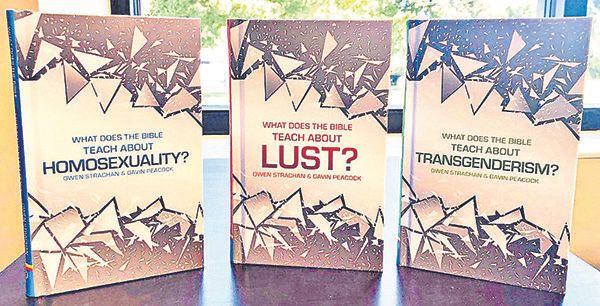
These three punchy books address pressing issues: what the Bible teaches about lust (on desire), about homosexuality (on Biblical sexuality) and about transgenderism (on identity).
The trilogy approach keeps each book short and focused while dovetailing effectively. Each book has about three chapters unpacking and applying biblical teaching and includes a testimony of someone saved from a life of sexual sin. Each book closes with very practical FAQs where answers are helpfully direct without being unnecessarily dogmatic.
These books are not evangelistic or apologetic; they provide pastoral application of biblical truth. But they should give believers the confidence and holiness to boost evangelism. They are positive, demonstrating the Father’s good plan, the Son’s abounding grace, and the Spirit’s transforming power regarding sexuality.
These are balanced books: orthodox and compassionate, realistic yet hopeful, down to earth but not unhelpfully explicit. They show nuance, for example assessing retweeted soundbites in a footnote to distinguish the helpful from the unhelpful. Written from a broadly reformed persuasion, the areas covered means that they will appeal to Bible believers from other backgrounds.
What Does the Bible Teach about Lust? provides rare teaching on instinctive desire. Acknowledging that, in a fallen world, sexual desire will misfire, the book addresses the issue of wanting to lust. Sin is explained thoroughly: ‘if it is sin to do it, it is sin to desire it.’ In addressing putting lustful impulses to death, the authors deal rigorously with pornography. They urge specific repentance, for example, of the associated idols of the heart like a desire for authority or affirmation.
What Does the Bible Teach about Homosexuality? addresses the move from doing what we want (1960s) to being what we want. It presents the full force of biblical teaching, refuting recent attempts to water it down. Rarely discussed matters like effeminacy are tackled. Having laid the groundwork in the first book on lust, the authors make clear that repentance for desire ‘is not a new plan for only one type of sinner’ but ‘what every person should do when an ungodly thought, desire or action crops up in their life’ (p67).
What Does the Bible Teach about Transgenderism? brings a positive biblical vision for manhood and womanhood. Unlike other books on this subject, it does not get bogged down in medical matters. It explains and applies special revelation (Scripture) not general revelation (good science). It exposes the flaws in ‘I feel therefore I am’ and encourages readers to love and embrace God’s design for them as men and women.
Some things could be better. A discussion on polygamy could be stronger, some comments on Eden and God’s law should be tighter, and statements on male and female distinctiveness could be rounded out with what they have in common. But these are minor quibbles for a top trilogy.
These three books are incredibly helpful for anyone struggling with sinful sexual desires, useful for group studies for older teens upwards, and timely for any believer seeking a biblical response to these pressing cultural issues. They’re also hardbacks at bargain prices!
Paul Smith
(Margate)






